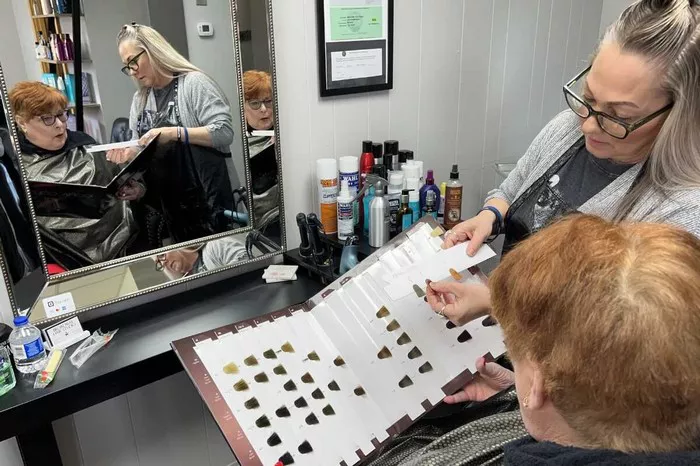A recent study by Consumer Reports, a U.S.-based consumer advocacy group, has raised alarm over the presence of hazardous chemicals in widely used synthetic hair products, commonly worn by Black women for braiding. These hairstyles, which can be worn for weeks, are often seen as a protective style, shielding natural hair from breakage and environmental damage. However, the report reveals that many of the synthetic hair brands contain substances that could pose serious health risks.
The findings of the study have left many questioning whether the protection offered by synthetic braids is worth the potential danger to their health.
Hairstylist Jahzé Wyse, who has witnessed the cultural importance of braiding firsthand, emphasized the tradition’s long-standing presence in Black communities. “It’s been a part of our culture for years. I don’t think braids are going anywhere. We’ve been getting them since we were young, at ages two or three,” she said.
The Consumer Reports investigation tested 10 popular synthetic hair products, all of which were found to contain cancer-causing agents. Additionally, nine of the products contained unsafe levels of lead. James Rodgers, the head of product safety at Consumer Reports, noted that concerns about the safety of hair products surfaced after discussions with Black women. “We found issues with these products—heavy metals and volatile organic compounds. We suspect that if we had tested more samples, we would have found even more problems,” he explained.
In response to the findings, Consumer Reports is calling for greater regulation of synthetic braiding hair and has petitioned the Food and Drug Administration (FDA) to intervene. The organization has also suggested reducing the frequency of braiding sessions to minimize potential exposure to harmful substances.
While some experts find the findings concerning, others have raised questions about the report’s methodology, pointing out the lack of peer review and other potential issues with the study’s design. Despite the debate, there is a general consensus that further research is necessary to better understand the risks associated with synthetic hair products.
Rodgers emphasized that the study was a pilot project, aimed at sparking much-needed conversation about the safety of these commonly used products. “We thought the results were important enough to start the conversation,” he said, underscoring the importance of further investigation into this issue.
As awareness grows, it remains to be seen how this new information will impact the future of synthetic braiding hair and the regulation of beauty products in general.


